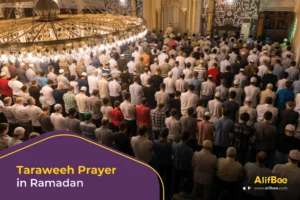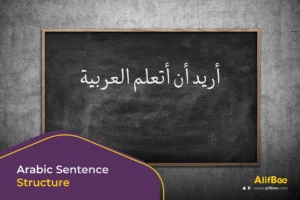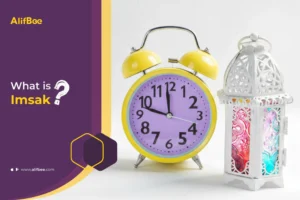What Countries Speak Arabic?
Arabic is one of the most widely spoken languages in the world. It is spoken across three continents, with more than 25 countries recognizing Arabic as their official language. The language has around 400 million speakers.
Ready to find out what countries speak Arabic, Arabic dialects, and why the language is so important today? This article will cover everything you need to know.
How Arabic Connects People Across Three Continents
Arabic ranks among the top five most spoken languages worldwide. Beyond the large number of speakers, it also holds great religious and global significance.
This vast scope defines everything you’re about to learn. Arabic is the voice of almost 400 million people around the world. While it is present in Asia, Africa, and Europe, the Arabic language also carries a rich history and major significance in modern business.
Although Arabic writing remains consistent throughout, different dialects distinguish its spoken forms. The language includes several dialects, shaped by diverse civilizations and traditions across regions.
This guide will hopefully be your compass. You’ll discover exactly where Arabic is spoken and how the language beautifully varies from one welcoming country to another.
Where Is Arabic Spoken?
Commonly referred to as the Arab world, Arabic is spoken in a large and diverse region. It serves as the official language and is used in daily life, including education, government affairs, media, and communication. Arabic embodies a vast history, culture, and the wisdom of one of the world’s greatest civilizations.
Moreover, its significance extends beyond native speakers. Over 1.8 billion Muslims around the world use Arabic as their sacred language. Even non-native speakers recite and pray in Arabic as part of their faith.
As the sacred language of Islam and a cornerstone of many cultures, Arabic holds global importance. The value of this language can be seen in how warmly native speakers welcome anyone who can speak or understand it.
You’ll also notice how many Muslims are eager to teach others their sacred language.
How Many Countries Speak Arabic? The 25 Arabic Speaking Countries
Many countries speak the Arabic language. Twenty five countries are considered Arabic speaking countries, with Arabic as their official language. The table below showcases the countries that speak Arabic. You will also observe how the dialect changes across these regional borders!
Region
Arabic Speaking Countries
Middle East (The Levant & Gulf)
Saudi Arabia, UAE, Qatar, Bahrain, Kuwait, Oman, Yemen, Iraq, Syria, Lebanon, Jordan, Palestine.
North Africa
Egypt, Sudan, Libya, Tunisia, Algeria, Morocco, Mauritania.
Horn of Africa & Others
Somalia, Djibouti, Comoros, Chad, Eritrea, South Sudan (partial).
Arabic Dialects Around the World
Arabic dialects differ greatly. While Arabic writing is consistent, pronunciation varies from one region to another. These dialects have evolved under the influence of many cultures across the Arab world.
One can better grasp these variations by comparing them to English accents. You can notice the difference when two native English speakers read the same text in different accents. Similarly, Arabic speakers from different regions may read the same passage in noticeably distinct dialects.
Now, let’s discuss Modern Standard Arabic (MSA); the formal and official form of the language. Learning MSA is crucial as it forms the foundation of your Arabic skills. It also helps you understand other dialects since it serves as the language’s core.
Levantine Arabic (Syria, Lebanon, Jordan, Palestine)
Commonly known as Shami, this dialect is widely admired for its soft and melodic pronunciation. Its friendly and approachable tone attracts many learners. The dialect is highly versatile and has a rich vocabulary, thanks to the Levant’s deep history and cultural diversity.
Cultural Note: This dialect is spoken throughout the Eastern Arab region and is especially well-known for its extensive media and musical output.
Egyptian Arabic (Egypt)
This is arguably the most famous dialect, and for good reason. Cairo has long been the media capital of the Arab world. Thanks to a massive collection of classic films, TV shows, and pop songs, Egyptian Arabic is the most widely understood dialect across Arab countries.
Cultural Note: If your priority is being easily understood, Egyptian Arabic is a great choice. Its vocabulary is close to MSA, making it accessible and widely recognized.
Gulf Arabic (Saudi Arabia, UAE, Kuwait, Qatar, Oman, Bahrain)
Also known as Khaleeji, this dialect reflects the traditional sounds and heritage of the Arabian Peninsula. It is famous for its distinct and clear pronunciation of the letter ق (qāf). Because of its cultural importance and traditional roots, Gulf Arabic tends to sound more formal than other dialects.
Cultural Note: Bedouin culture and a long history of hospitality have deeply shaped this dialect. Familiarity with Gulf Arabic is essential for anyone looking to work or do business in the region. Understanding it will give you a strong advantage in the Gulf’s commercial and social environments.
Maghrebi Arabic (Morocco, Algeria, Tunisia, Libya, Mauritania)
This dialect is truly the linguistic “wild card.” Usually referred to as Darija, it’s a vibrant fusion influenced by native Berber languages and French. This mix creates a distinctive vocabulary and rapid speech rhythm that can be challenging for learners used to Eastern dialects.
Cultural Note: Don’t be intimidated by its uniqueness! Darija is rich in local identity and cultural pride. Learning it can be incredibly rewarding if you plan to travel or do business in North Africa. Locals are often warm and appreciative toward anyone who makes an effort to speak their dialect.
Arabic as a Global Language
Arabic’s importance extends far beyond its native speakers. Its influence on religion, global culture, and communication highlights its global reach.
- Religious Importance: Millions of people study Arabic to read the Qur’an and engage with Islamic studies. This creates a profound cultural and spiritual connection worldwide.
- Economic and Diplomatic Power: The demand for Arabic speakers is rapidly growing in international business, diplomacy, and technology. The Middle East and North Africa hold immense strategic and economic importance today.
- Linguistic Influence: Arabic has been a major cultural exporter. Its influence appears in many languages, including Spanish and English. Words like algebra, coffee, sugar, zero, and sofa all come from Arabic roots. Its contributions to mathematics, science, and philosophy remain embedded in everyday life.
Why Learning Arabic Matters Today
Learning Arabic can transform how you see the world.
- Cultural Understanding: Beyond textbooks, Arabic opens a window to 1,400 years of history, philosophy, stories, and art. Surrounding yourself in the culture allows for genuine appreciation — something translation alone can’t offer.
- Professional Opportunities: A solid grasp of Arabic opens doors to new career paths. Businesses across the Arab region value employees who understand both the language and its dialects.
- Heritage: For many, learning Arabic is deeply personal. It’s a way to reconnect with family roots, traditions, and cultural identity.
FAQs
There are 25 Arabic speaking countries. These are nations that have Arabic as their official language. The Middle East and North Africa both comprise these nations.
Arabic is the official language in 25 countries across the Middle East and North Africa. These include nations like Saudi Arabia, Egypt, the United Arab Emirates, Syria, Qatar, Iraq, Palestine, Jordan, Morocco, and Lebanon. Arabic is also spoken in countries such as Somalia, Sudan, and Algeria, and used by millions of Muslims around the world in religious and cultural contexts.
Modern Standard Arabic (MSA) is used in official and formal settings. Books, newspapers, and TV news use it. Also, when people speak various dialects, they prefer to use MSA to be clear.
It is spoken in both continents. Sudan, Morocco, and Egypt are the countries in Africa that use this language, while in Asia, it is used in Iraq, Lebanon, and Saudi Arabia.
The older form found in the Quran and other early works is Classical Arabic (CA). The Modern Standard Arabic (MSA) is the newer variant and is used in today’s time.
Arabic has four main dialect groups; namely, Levantine, Egyptian, Gulf, and Maghrebi — but within these, there are over 25 to 30 local varieties.
Final word
No matter where you go, Doha’s glass towers or Morocco’s busy marketplaces, knowing Arabic is always beneficial. It will help you engage with a system used by hundreds of millions of people rather than only learn basic terms.
Don’t worry about the many dialects of the language. Just follow the method slowly and gradually. Keep the learning process simple, practice your chosen dialect every day, and you will love every minute of this thrilling adventure.
Want to start learning Arabic easily? Try the AlifBee app — now with a 14-day free trial!








